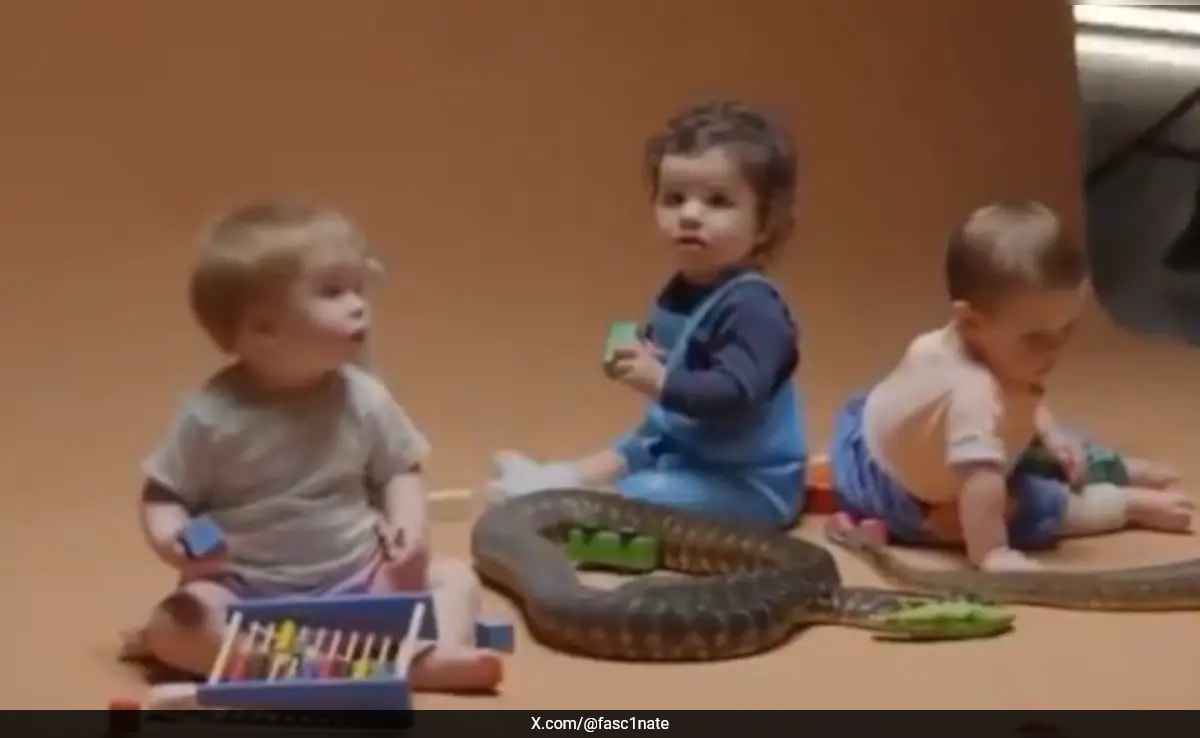Video: Babies Play With Snake, What Scientists Discovered Will Surprise You

Quick Reads
Summary is AI generated, newsroom reviewed.
Recent research indicates humans aren’t born with a fear of snakes.
Infants showed curiosity when exposed to snakes, not fear, in studies.
Fears are learned behaviors, often influenced by caregivers’ reactions.
Recent research challenges the long-held belief that humans are born with an innate fear of snakes. In a study featured on BBC Two’s “The Human Body: Secrets of Your Life Revealed”, infants displayed curiosity rather than fear when introduced to snakes, suggesting that such fears are acquired rather than inherent.
Further supporting this, a University of Virginia study found that 11-month-old babies showed increased attention to images of snakes only when paired with fearful voices, indicating that emotional context plays a significant role in fear development.
Also Read | Covid-19 Likely Originated From Wildlife Trade, Not Lab Leak, Researchers Claim
Research suggests that fears are largely learnt behaviours, shaped by observing others’ reactions. Studies have shown that babies don’t inherently fear snakes; instead, they pick up cues from their carers. If a parent or carer exhibits fear around snakes, the infant may develop a similar phobia. However, without exposure to negative reactions, babies tend to approach snakes with curiosity rather than fear, indicating that fear is more a product of environment and observation than instinct.
Also Read | UK Set to Toughen Immigration Rules: ‘Fluent English’ Required To Remain In Britain
These findings imply that children’s fears are significantly influenced by their environment and caregivers’ reactions. In regions like Australia, where encounters with dangerous animals are more common, instilling a healthy level of caution is essential. However, for those with intense phobias, moderating reactions around children could prevent the transmission of these fears. Understanding that fear responses are learnt opens avenues for early interventions and education, potentially reducing the prevalence of certain phobias in future generations.






